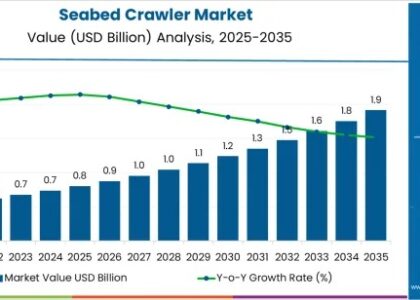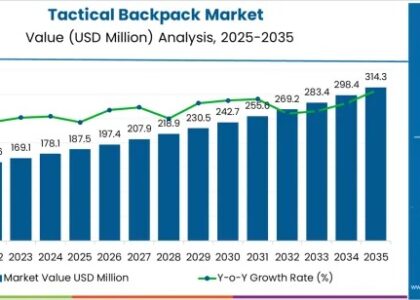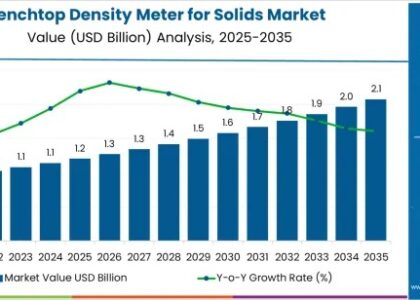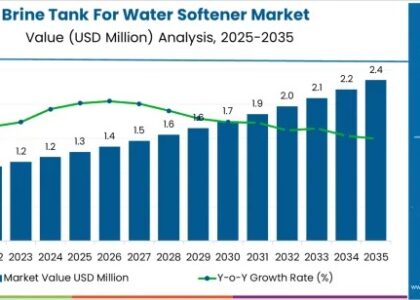
The plastic bottle market is expected to reach a significant value of US$ 102.8 billion in 2023. The market forecast for 2033 is considerably stronger, with projections topping US$ 155.2 billion. The demand for plastic bottles is rising at a gradual CAGR of 4.2% during the projection period.
Several key drivers propel the plastic bottles industry. The growing demand for packaged beverages, including water, soft drinks, and juices, continues to boost production. Moreover, the pharmaceutical and personal care sectors increasingly rely on plastic bottles for their versatility, convenience, and lightweight properties.
Innovations in plastic bottle design, such as ergonomic shapes and tamper-evident closures, enhance consumer appeal. The adoption of sustainable practices, such as recycling and the use of eco-friendly materials, is another significant driver as companies strive to align with changing consumer preferences.
One of the primary restraints is the increasing scrutiny of single-use plastics due to environmental concerns. Governments and regulatory bodies worldwide are imposing stricter regulations on plastic usage, compelling manufacturers to explore alternative materials or recycling solutions. Rising production costs, driven by fluctuating raw material prices, further challenge profitability.
Get Your Sample Report – Drive Business Success! https://www.futuremarketinsights.com/reports/sample/rep-gb-15587
Opportunities abound in the plastic bottles industry. The adoption of recycled plastics presents a significant growth avenue as companies invest in closed-loop recycling systems and consumer education to promote sustainable practices. The rise of e-commerce has created a need for specialized packaging solutions, offering opportunities for innovation in design and durability.
The plastic bottles industry is witnessing a transformation with several emerging trends. Smart bottles equipped with RFID technology and QR codes enable consumers to access product information and enhance brand engagement. Lightweighting is a practice that reduces the weight of plastic bottles while maintaining their structural integrity, minimizes environmental impact, and lowers transportation costs.
Anti-counterfeiting measures, such as holographic labels and tamper-proof seals, address consumer concerns about product authenticity. Lastly, the adoption of bioplastics derived from renewable sources aligns with sustainability goals and reflects changing consumer values. These trends are reshaping the industry’s landscape and driving innovation.
” The paramount opportunity in the plastic bottles market centers on sustainable packaging solutions. Embracing eco-friendly materials, promoting recycling, and innovating in sustainability aligns with growing consumer and regulatory preferences, offering a promising path for investors and industry stakeholders.” says an FMI analyst.
Request Customization of Report! https://www.futuremarketinsights.com/customization-available/rep-gb-15587
Key Takeaways from the Plastic Bottles Market
- PE plastic segment leads the plastic bottles industry with a 34.3% market share in 2023.
- A key player in the plastic bottles industry, food packaging holds a 36.1% market share in 2023.
- The United States leads with a 21.3% market share in 2023, driven by a shift towards sustainable plastic solutions.
- Canada maintains a 3.1% market share in 2023 with a pragmatic approach to eco-friendly initiatives.
- Germany commands a 4.3% market share in 2023, focusing on innovation and cutting-edge technologies.
- The United Kingdom holds a 2.8% market share in 2023, emphasizing sustainability and reducing plastic waste.
- Spain contributes with a 2.0% market share in 2023, showing adaptability and cost-effective packaging solutions.
- France’s 1.6% market share in 2023 prioritizes quality, aesthetics, and unique packaging designs.
- Italy maintains a 1.2% market share in 2023, balancing sustainability and innovation in its approach.
- China dominates with a 15.5% market share in 2023, driven by rapid urbanization and eco-friendly packaging.
- India showcases a 7.2% market share in 2023, with a thriving market propelled by the expanding food and beverage industry.
- Japan’s 5.4% market share in 2023 reflects a mature market focused on innovation and quality packaging.
- South Korea, with a 3.3% market share in 2023, emphasizes aesthetics and functionality in packaging.
- Thailand’s 1.9% market share in 2023 experiences steady growth, driven by tourism and portability preferences.
Key Players Striving to Obtain Greater Share in the Plastic Bottles Market
The plastic bottles industry exhibits a competitive landscape marked by established players commanding substantial market shares. These companies leverage their extensive experience and resources to maintain a dominant position.
Competition within the plastic bottles market is driven by factors such as price competitiveness, product quality, and distribution networks. Companies strive to differentiate themselves by offering a diverse range of bottle sizes, shapes, and materials to cater to various industries and consumer preferences.
The industry faces challenges arising from increased scrutiny of single-use plastics and regulatory pressures to adopt more sustainable practices. Companies are responding by exploring alternative materials and investing in recycling initiatives to align with evolving environmental expectations.
New entrants in the plastic bottles industry can find opportunities by specializing in niche markets or introducing innovative bottle designs that cater to emerging consumer trends. Collaborations with recycling and sustainability initiatives offer avenues for growth as the industry shifts toward more environmentally friendly practices.
Recent Developments in the Plastic Bottles Market:
- Coca-Cola’s recycled plastic bottles. Coca-Cola, a multinational beverage company, has announced to use of 100% recycled plastic for its water bottles by 2025.
- Unilever’s reusable plastic bottles. Unilever, a multinational consumer goods company, has announced to use of 100% reusable or recyclable plastic packaging by 2025.
- Dow’s sustainable plastic bottle materials. Dow, a materials science company, has developed a new line of sustainable plastic bottle materials.
- BASF’s compostable plastic bottle materials. BASF, a German chemical company, has developed a new line of compostable plastic bottle materials.
- Evonik’s biodegradable plastic bottle materials. Evonik, a German specialty chemicals company, has developed a new line of biodegradable plastic bottle materials.
Contact Us:
Future Market Insights Inc.
Christiana Corporate, 200 Continental Drive,
Suite 401, Newark, Delaware – 19713, USA
T: +1-845-579-5705
For Sales Enquiries: sales@futuremarketinsights.com
Website: https://www.futuremarketinsights.com
LinkedIn| Twitter| Blogs | YouTube





